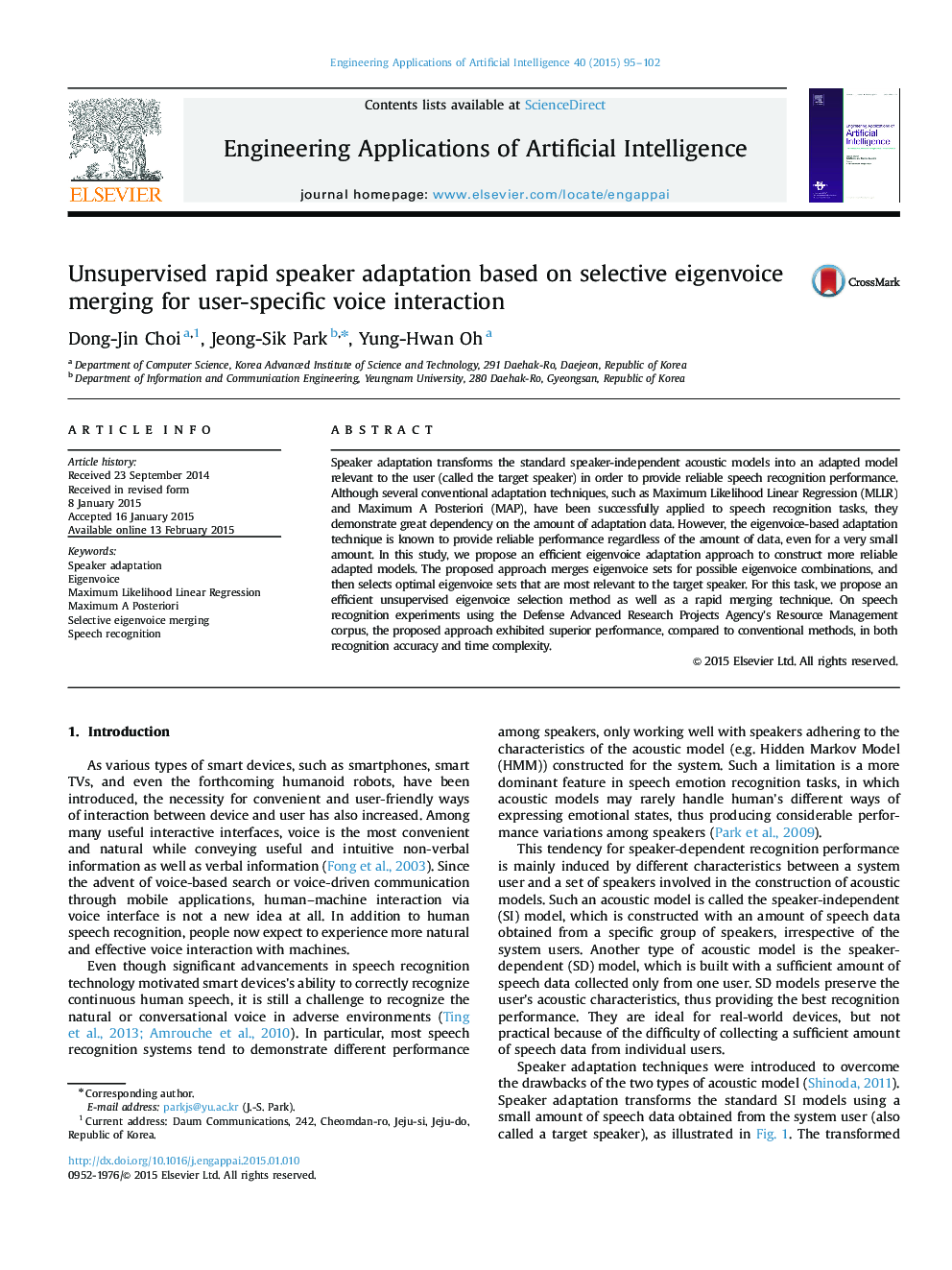| Article ID | Journal | Published Year | Pages | File Type |
|---|---|---|---|---|
| 380350 | Engineering Applications of Artificial Intelligence | 2015 | 8 Pages |
Speaker adaptation transforms the standard speaker-independent acoustic models into an adapted model relevant to the user (called the target speaker) in order to provide reliable speech recognition performance. Although several conventional adaptation techniques, such as Maximum Likelihood Linear Regression (MLLR) and Maximum A Posteriori (MAP), have been successfully applied to speech recognition tasks, they demonstrate great dependency on the amount of adaptation data. However, the eigenvoice-based adaptation technique is known to provide reliable performance regardless of the amount of data, even for a very small amount. In this study, we propose an efficient eigenvoice adaptation approach to construct more reliable adapted models. The proposed approach merges eigenvoice sets for possible eigenvoice combinations, and then selects optimal eigenvoice sets that are most relevant to the target speaker. For this task, we propose an efficient unsupervised eigenvoice selection method as well as a rapid merging technique. On speech recognition experiments using the Defense Advanced Research Projects Agency׳s Resource Management corpus, the proposed approach exhibited superior performance, compared to conventional methods, in both recognition accuracy and time complexity.
